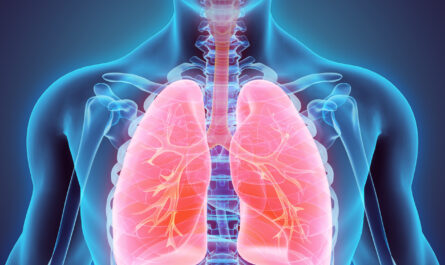Good news for individuals who experienced a loss of taste and smell as a result of COVID-19—the effects may not be permanent. A recent study conducted by the University of Trieste in Italy reveals that despite the initial loss, gradual recovery and restoration of these senses can occur over time.
The research, titled “Olfactory and Gustatory Function 3 Years After Mild COVID-19—A Cohort Psychophysical Study,” was published in JAMA Otolaryngology–Head & Neck Surgery. The study involved 88 participants who had mild symptoms of COVID-19 and had tested positive for SARS-CoV-2 between March and April 2020.
Over the course of three years, psychophysical evaluations were conducted to assess the long-term effects of taste and smell loss using the Sino-nasal Outcome Test 22 (SNOT-22), extended Sniffin’ Sticks test battery, and Taste Strips test.
The results showed a gradual reduction in the dysfunction of smell and taste as reported by the participants. Initially, during the acute phase, 64.8% of participants experienced dysfunction, but this percentage decreased to 31.8%, 20.5%, and 15.9% at the 1-year, 2-year, and 3-year follow-ups, respectively, according to the self-reported assessments using SNOT-22.
The extended Sniffin’ Sticks test battery also indicated a decline in dysfunction, with percentages of 40.9%, 27.3%, and 13.6% at the 1-, 2-, and 3-year evaluations, respectively. Similarly, the Taste Strips test showed dysfunction percentages of 26.1%, 13.6%, and 11.4% at the 1-, 2-, and 3-year evaluations, respectively.
The findings of the study suggest a favorable rehabilitation process for the sense of taste and smell over the observed three-year period, with taste dysfunction being less frequent and recovering at a faster rate compared to smell dysfunction.
The loss of taste and smell was a well-known symptom of the initial strain of SARS-CoV-2, and it was even considered an early diagnostic indicator before widespread testing was available.
In addition to the negative impact on the enjoyment of food, the loss of smell can pose potential dangers. For example, natural gas is artificially scented to enable individuals to detect leaks before accidents occur. Similarly, the smell of smoke serves as an early warning sign of a fire before the sight of smoke becomes noticeable.
Most individuals who contracted COVID-19 during the early stages of the pandemic reported experiencing a loss of taste and smell, which aligns with the findings of this study. However, subsequent variants, such as the omicron variant, have had significantly less impact on these senses, with almost no noticeable effect.
For those who experienced these sensory losses, there was uncertainty regarding the duration and potential for recovery. Dealing with a novel infection like COVID-19 presents challenges due to the lack of past clinical history and recovery timelines. However, this study offers reassurance that the loss of taste and smell is not permanent and that gradual recovery is occurring over time.
*Note:
1. Source: Coherent Market Insights, Public sources, Desk research
2. We have leveraged AI tools to mine information and compile it




